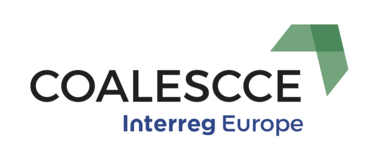Specific questions the Host Region asked the Peer Review Team.
1) How can the local energy plans be improved to support the establishment of “community energy” groups and projects?
2) How to encourage the community to get involved in renewable energy and energy efficiency projects?
3) How can the private and public sectors promote and invest in the energy security of the local communities?
4) How can we develop sustainable business and financing models engaging community groups and private/public partnerships?
Specific outcomes the Host Region expected to achieve from this Peer Review
1) Working ideas on how to trigger the involvement of community groups, public authorities and businesses in the development and implementation of local and regional energy action plans and measures.
2) Recommendations on possible means of financing local community energy projects.
The Peer Review team reflected on findings at the end of each day. The morning of 19 April was spent discussing the findings and recommendations.
The SWOT analysis conducted produced two main themes; Communication and Finance. Findings and recommendations were therefore presented along these themes and good practice examples were also provided.
Each section notes good, positive or interesting practice
2.1 Communication
Good Practice observed in the Peer Review
A dialogue between local authorities and communities has already begun via tenement block energy efficient retrofit schemes. This can serve as a basis for further discussions about community energy.
Information and intelligence is available on existing renewable energy and energy efficient retrofit schemes – statistics and monitoring data. This could be disseminated further to raise awareness amongst citizens of the benefits of these projects.
AE3R is working closely with the local university, giving a strong academic basis for low carbon schemes.
Some support is already provided for training and communication programmes by the private sector.
Challenges observed
There is a lack of awareness of, and understanding of, the concept of community energy across all sectors. However, despite this, the Peer Review found a number of examples of community owned and/or led energy projects.
There is no working connection between AE3R and climate change / environmental NGOs – the work of AE3R focuses mainly on the financial benefits of energy efficiency and renewable energy projects.
There are no low carbon programmes specifically for citizens.
Opportunities
The monitoring of retrofits could be improved to give a better evidence base for these projects – which could be disseminated to citizens and community groups.
There is an opportunity for AE3R to join the European Climate Initiative – this initiative will focus on energy transformation in Central & Eastern European countries.
There is an opportunity to identify existing communities with their own assets and funding to engage in new community energy projects and initiatives.
Recommendations
1. Develop a toolkit to engage citizens in community energy schemes (e.g. for retrofit of blocks of flats)
2. Utilise the “Green Light” centre to provide resources for citizens wanting to develop community energy schemes
3. More involvement of energy agency in community engagement
4. Ploiesti SEAP should include community energy as a tool for delivering objectives
5. Identify existing community groups

